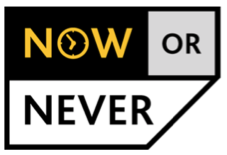In 2018, we signed up to Social Enterprise UK’s (SEUK) Buy Social Corporate Challenge, committing us to increase the goods and services we procure through social enterprises*.
Across the business, our people are using social enterprises to supply everything from everyday items, such as hand soap and stationery, through to design and print work, cleaning services, catering, venue hire, and team away days.
To encourage further uptake, we have:
- Set up a system to monitor the amount spent with social enterprises
- Created a social enterprise directory of SEUK verified companies
What we’ve achieved so far
- Since January 2019, we have increased the number of social enterprises we are working with by 100%.
- Between June 2018 and June 2019, we have spent over £450k with social enterprises.
Click here to view or on the image below to download the whole case study.
Here are some of the stories from social enterprises that we’ve partnered with;
Radiant Cleaners:
Radiant Cleaners are a Nottingham-based social enterprise that provides support and jobs for individuals facing barriers to employment. They are a professional cleaning service, with a great team made up of employees at risk of exclusion from the jobs market - people like new father Nick.
Nick was struggling to find work to fit around his part-time college course. By working for Radiant Cleaners, he is now able to support his family.
“Without the help from Radiant Cleaners to accommodate my class schedule, I would not be able achieve the qualifications I need to be a successful electrician. I have now completed City & Guilds level 2 diploma in electrical installations.
Working in the Willmott Dixon cabins has been rewarding. I have had an opportunity to see what it is like to work on an active construction site. I enjoy the friendly and helpful atmosphere of the Willmott Dixon people.”
Community Wood Recycling:
To avoid surplus wood from going to landfill, in 2010, we partnered with Community Wood Recycling; a social enterprise that collects and reuses waste wood to create work and training for local disadvantaged people.
Local teams collect waste wood from Willmott Dixon sites and sort it into three categories: larger pieces are sold for reuse, smaller pieces are made into sellable products and leftover pieces are cut up into firewood. Anything that cannot be reused is recycled into woodchip.
The activity helps disadvantaged people (for example, ex-offenders, those overcoming substance abuse and individuals with learning difficulties or mental health issues) to build confidence and learn new skills.
Since March 2010, Community Wood Recycling has rescued 4,387 tonnes of wood from our waste stream, creating 44 paid jobs and training 123 people.
The partnership also reduces our environmental impact. Our partnership with Community Wood Recycling has saved 2,134 tonnes of carbon dioxide.
Richard Mehmed, managing director, Community Wood Recycling said:
“We are delighted to have been working in partnership with Willmott Dixon since 2010. Our collaboration has helped to save precious resources and change lives and clearly demonstrates how, by working with social enterprises, the construction sector can play a key role in developing the circular economy to the benefit of the whole community.”
*Currently, there is no legal definition of a social enterprise. SEUK defines social enterprises as businesses that sell goods and services in the open market, create employment and reinvest their profits back into the business or the local community.

